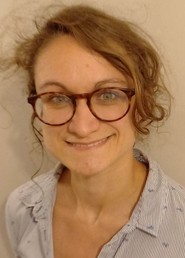Elise Peter
I'm a PhD student currently working at the laboratory. One of the unresolved question concerning paraneoplastic syndrome is how and why the immune breakdown occur. The work hypothesis of the team, based on previous studies conducted at the laboratory, is that tumor specificities (genetic, immunologic) may be the trigger of the pathophysiologic cascade of PNS. By studying tumor tissue associated with different gynaecological malignancies and different PNS (Yo and Ri), she will try to identify the pivotal elements originating these syndromes.
This work, relying on a great quantity of tumor material, has been enabled by a thorough work by the entire team to retrieve both samples and clinical data. This collective strength also allows to bond with other teams issuing in productive collaborative works that have been a cornerstone of my PhD project. I overall consider it a great chance to pursue my PhD in this both welcoming and hard-working team.
Publications & Reviews during my stay:
Peter E, Do LD, and al. Cerebellar Ataxia With Anti-DNER Antibodies: Outcomes and Immunologic Features. Neurol Neuroimmunol Neuroinflamm. 2022. doi: 10.1212/NXI.0000000000200018
Peter E, Treilleux I, and al. Immune and Genetic Signatures of Breast Carcinomas Triggering Anti-Yo-Associated Paraneoplastic Cerebellar Degeneration. Neurol Neuroimmunol Neuroinflamm. 2022. 10.1212/NXI.0000000000200015
Lardeux P, and al. Core cerebrospinal fuid biomarker profle in anti‑LGI1 encephalitis. Journal of neurology. 2021. https://doi.org/10.1007/s00415-021-10642-2



